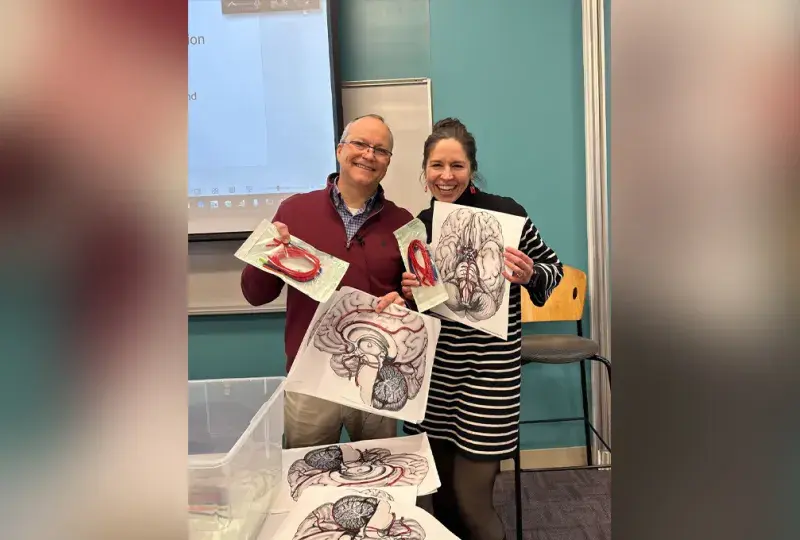
Sofia Vallila Rohter is Associate Professor in the Department of Communication Sciences and Disorders in the School of Health and Rehabilitation Sciences. She is also Co-Director of the Cognitive Neuroscience Group.
At the IHP, Dr. Vallila-Rohter teaches courses within the Master’s Program in Communication Sciences and Disorders, such as Neuroanatomy & Neurophysiology of Communication & Swallowing, Physiology, Acoustics & Perception of Speech, and Research Design & Evidence-Based Practice for CSD. She is also involved in teaching and mentoring within the PhD in Rehabilitation Science Program at the institute. Dr. Vallila Rohter loves exploring complex concepts with students and unpacking them in a clinically-meaningful way.
In her research, Dr. Vallila Rohter aims to better understand the underlying mechanisms contributing to relearning in people with aphasia, a language deficit that often arises as a result of stroke or traumatic brain injury. Using behavioral and neurophysiological methods, she explores how nonlinguistic cognitive systems might contribute to success with therapy. One broad goal of Dr. Vallila Rohter’s research is to improve clinicians’ abilities to tailor treatment to individuals, improving the predictability and efficacy of treatment for aphasia.
Dr. Vallila Rohter also has collaborations with clinicians and clinician-scientists at Massachusetts General Hospital, Brigham and Women’s Hospital and Spaulding Rehabilitation Hospital. Utilizing frameworks of implementation science, she, her team and collaborators are working towards developing and studying initiatives to improve care delivery for stroke patients. Clinically, Dr. Vallila Rohter practices as a speech-language pathologist in acute care as part of the Rehabilitation team at Brigham and Women’s Hospital.
- BA, Romance Languages, UNC-Chapel Hill, Chapel Hill, NC
- MS, Linguistics, Georgetown University, Washington, DC
- PhD, Speech and Hearing Biosciences and Technology, MIT, Cambridge, MA
- Aphasia Rehabilitation
- Category Learning
- Feedback-based learning
- Feedback processing
- Executive Functions
- Strategy Development
- Individual Differences
- Neural organization of language
- Neural substrates of learning
Dr. Vallila-Rohter has published numerous papers - some titles are highlighted below. You can view a complete listing of Dr. Vallila-Rohter's publications on Google Scholar or in her CV.
Using an implementation framework to survey outcome measurement and treatment practices in aphasia.
Strategy development and feedback processing during complex category learning.
Non-linguistic learning in aphasia: evidence from a paired associate and feedback based task.
In addition, Dr. Vallila-Rohter regularly presents at conferences and industry events. Please see her CV for a complete list of presentations.
Feedback-based nonword learning in aphasia: Exploring the role of language and cognition at the Annual Academy of Aphasia Conference.
Incorporating metacognitive strategy training into semantic treatment promotes generalization and improves functional communication in aphasia at the Academy of Aphasia Conference.
Applying the rehabilitation treatment specification system across speech language pathology at the Annual American Congress of Rehabilitation Medicine (ACRM) Conference.
Exploring the relationship between risk-taking, anxiety, depression and functional language use in people with aphasia at the Annual American Speech and Hearing Associate Conference.
Using implementation frameworks to examine current practices and barriers in aphasia service delivery at the Clinical Aphasiology Conference.


